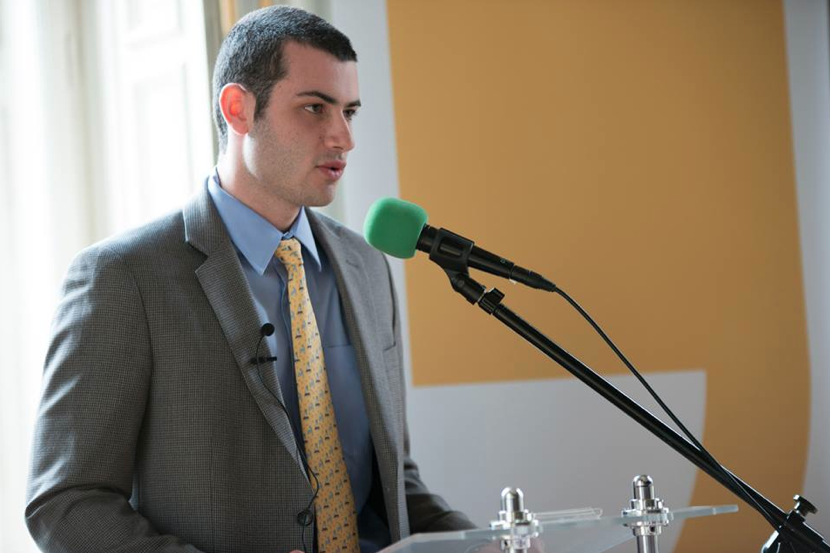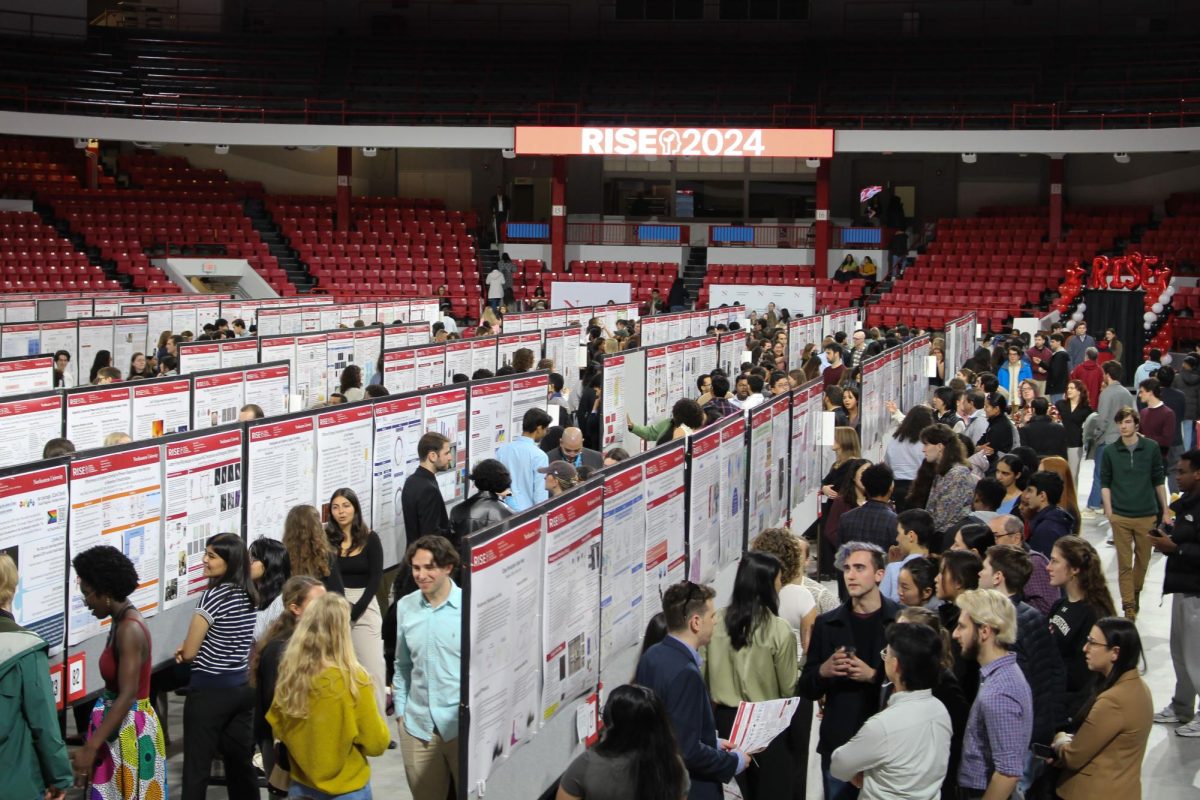By Mary Whitfill, Editor-in-Chief
Aaron Kanzer, a third year political science and economics combined major, jetted off to Hungary this summer to present and defend a pair of papers he wrote for the Global Debate and Public Policy Challenge (GDPPC). Following his eighth place finish, Kanzer boarded another international flight to visit an unlikely friend and mentor: Wolfgang Petritsch, former Austrian Ambassador to the United Nations.
In Hungary, Kanzer competed against students from across the world for a $10,000 scholarship.
“You get to this place and you think it is going to be so competitive, but you get there and you are almost in awe of how intelligent everyone else is,” Kanzer said. “These people are all from different areas of the world and nobody is as Americanized as a lot of the international students at Northeastern.”
The GDPPC is an international scholarship program that offers undergraduates from across the world the opportunity to explore various global issues from multiple points of view. This year, the forum, entitled “Rethinking Drugs,” asked students to pen a political memorandum addressing a hypothetical scenario. The top 200 were asked to write an additional piece addressing the economic burden of high incarceration rates related to drug arrests. After that, Kanzer, along with 42 other students, went to spend a week in Budapest where the finalists debated and defended their arguments.
Kanzer’s first 1500-word paper dealt with the stigma and decriminalization surrounding soft drugs, particularly marijuana.
“I took an economic and social stance,” Kanzer said. “There is a lot of stigmatization surrounding soft drugs and lawmakers aren’t really able to move forward with progressive things because it is so stigmatized. If they want to create some sort of law mechanisms and put them in place, they have to educate the population on the use of marijuana and explain that it is possible to use in a safe way.”
Kanzer’s paper got more specific and detailed the limitations and actual process of implementing the ideas in the first piece. Kanzer discussed how drug policy could be implemented in a way that lessened the economic burden of incarceration rates, with a heavy emphasis on how marijuana could be introduced into a society in a less harmful way.
“If a government were to control the entire process from cultivation, production, wholesale, shipment and retail, not only could they make an unbelievable amount of money, the regulation should make it much more safe, reliable and monitored,” Kanzer said.
After submitting his final paper, Kanzer was selected as one of the top 50 participants and was invited to Budapest to present and debate his paper in front of a panel of drug policy experts, where he moved into the top 12. The next morning, the top 12 debated and spoke about their topics and Kanzer finished eighth.
“You get talking to people from, say, Southeast Asia where drug policy is really stiff, or from Europe where it is much more relaxed, and it pulls you away from what you previously perceived,” Kanzer said. “You start to realize that things are global and not just domestic and it made me realize I needed to stop being so naïve. It was a wonderful experience.”
In addition to his top 10 placement in Budapest, Kanzer was named runner-up in the 2012 ‘Think Transatlantic’ undergraduate student essay competition sponsored by the German Embassy, where he drafted a paper on the necessity of economic stability for democracy.
After leaving Hungary, Kanzer went to Croatia to visit Ambassador Wolfgang Petritsch and his family.
Kanzer first met Petritsch in October of 2013, when he found an open seat at a lecture at Harvard where a series of conversation topics with fellow audience members led him to connect with Petritsch, the former EU chief negotiator at the Kosovo peace talks in Paris. Following the lecture, the two met regularly for coffee and a mentorship emerged.
His international experiences have lit a fire in Kanzer to pursue public policy on a larger scale in the future.
“Doing what I did in Budapest and having him as a mentor inspired me greatly to forget about the money and everything else and just help people on a very grand scale,” Kanzer said. “It is very valuable exposure to meet not only people my age, but get to know people like Wolfgang on a personal level. It has inspired me to become more knowledgeable on these big issues that really do have a solution.”
This is not the first summer Kanzer spent abroad. Last summer he participated in the “Disarmament Diplomacy, Humanitarian Action, and International Security” dialogue in Geneva, Switzerland. The program deals with human rights law, arms control and international security, and is led by associate political science and international affairs professor Denise Garcia.
“It was extraordinary to have [Aaron] in the group. He is bright and eager to learn every day,” Garcia said.
It was Kanzer’s experience in Geneva that ultimately broke the ice with Petritsch, as the two were able to discuss their mutual connections at the UN when they first met at Harvard.
“Aaron connected to as many people as possible during his time there. He enjoyed every minute about it, and met more people in the Geneva international community than any other in the group,” Garcia said. “His public speech skills are quite remarkable and I have no doubt he will be a US diplomat one day representing and negotiating on behalf of our great country, and as a great ambassador to our NU.”
Photo courtesy Aaron Kanzer












